
<< · I · II · III · IV · V · VI · VII · VIII · IX · X · XI · XII · XIII · XIV · XV · XVI · XVII · XVIII · XIX · XX · XXI
12th Transatlantic Students Symposium
Sustainability in Education, Culture and Politics:
Questioning the Validity of National Narratives and Policies
Humboldt-Universität zu Berlin, Oregon State University,
University of Warsaw
NM, AZ, CO, OR, March 21-30, 2014
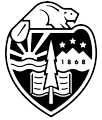
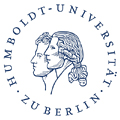
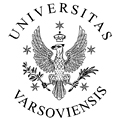
Program Description
In recent years, questions have arisen pertaining to the level at which the current lifestyle of humanity, particularly in the West, can be sustained over the long run. Primarily, concerns originating from ecological considerations appear to be describing a narrative of decline and threat, as, for instance, testified by David Attenborough's State of the Planet (2000), E.O. Wilson's call to preserve The Future of Life (2002), Al Gore's An Inconvenient Truth (2006), and Jared Diamond's chilling narrative of ecological Collapse (2006) and his call to listen to lessons from The World Before Yesterday (2013).
Such perspectives - oftentimes chided as Malthusian - have a long tradition, of course, not just within academia and documentaries, but also within literature, as testified by, for instance, Henry David Thoreau's Walden (1854), Ernest Callenbach's Ecotopia (1981), and Geoffrey Reggio's Koyaanisqatsi (1982), to name only a few examples.
The narrative of sustainability, however, does not merely touch the ecological, but other areas as well. Particularly in a time of ongoing crisis, questions of sustainability touch the economic sphere, which is intimately related to politics. The project of European integration is severely put to the test, challenging once rather optimistic and hopeful conceptions of solidarity and supranational cooperation. In several Western countries, the political framework of democracy itself appears put to the test -- both domestically and internationally --, and new movements from the left and right have been questioning the status quo.
This has raised concerns over cultural matters as well, specifically with regard to reemerging national and nationalist narratives, responses to immigration old and new, to questions of cultural and ethnic identity, as well as the intersections of science and politics as they are manifesting itself in areas of energy, health, environmental and climate policy, for instance.
Such challenges have also affected the nature and functions of education, especially given that education can be said to be related to finding a working and sustainable narrative for the future. With current conceptions and frameworks in flux and under review, it is the area of education that may be one of the deciding factors in whether our current ways of living are sustainable or not.
The 2014 Transatlantic Students Symposium will be dedicated to finding approaches to the challenge posed by such questions of sustainability. Students from North America and Europe will conduct a common field trip to New Mexico and Oregon, prepared academically by classes at the three participating universities, Humboldt-University Berlin, Oregon State University, and the University of Warsaw.
Symposium Week Field Trips
Site Visits: Acoma Pueblo, Chaco Canyon, Canyon de Chelly, Monument Valley, cliff dwellings at Mesa Verde, Japanese Internment Memorial in Santa Fe, Georgia O'Keefe Museum in Santa Fe
Institutional Visits: Quivira Coalition (farming cooperative) in Albuquerque, Navajo Nation (including a workshop with the Vice President), San Juan Citizens Alliance in Durango (environmental group), SAGE gardens (farming coop.) in Corvallis
Total participants: 31
Organizers
Dr. Philipp Kneis, Dr. Allison Davis-White Eyes,
Dr. Brent Steel (OSU),
PD Dr. Reinhard Isensee (Humboldt),
Dr. Tomasz Basiuk (Warsaw)
Student Organizers
Sophie Bennetzen, Christina Rechenberger, Carolin Kubanke (Humboldt), Marianna Amorim, Rebecca Arce, Elba Moise, DJ Zissen (OSU)
Student Participants (not organizers)
18 (Humboldt: 9, OSU: 6, Warsaw: 3)
Conference Program
Complete Report on the 12th Symposium
Syllabus for Preparatory Class at OSU
Partners and Supporters
Humboldt-Universität zu Berlin: International Office,
Humboldt-Universität, Philosophical Faculty II,
American Studies Program,
Humboldt-Universität, Students Union English and American Studies
Oregon State University:
Public Policy Graduate Program,
Diversity & Cultural Engagement (Intercultural Student Services)
University of Warsaw, American Studies Center
Holiday Land Richter Reisen, Berlin
see also: Latest Program Report
back to: Symposia
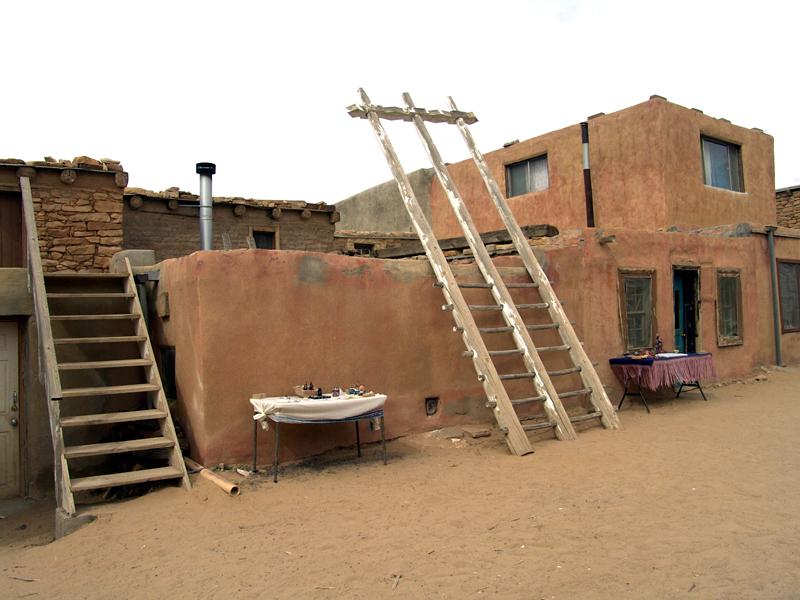
Acoma Pueblo
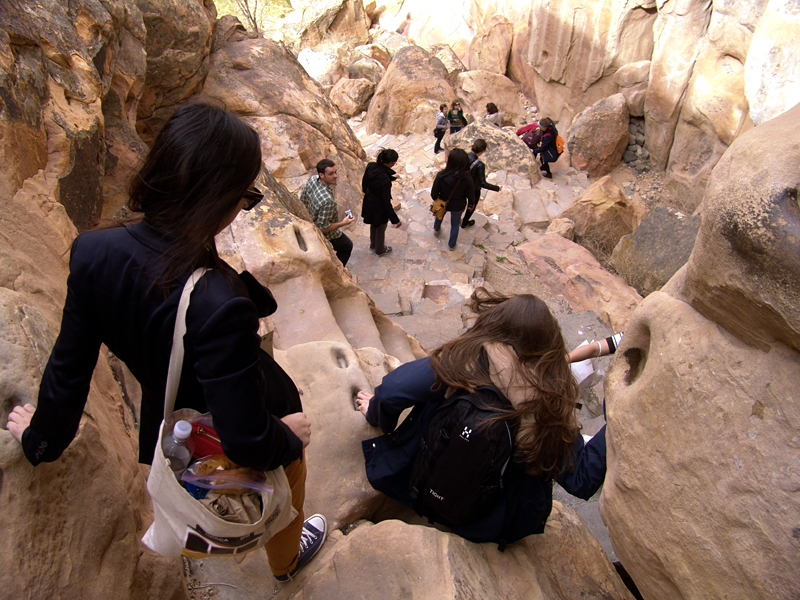
Acoma Pueblo
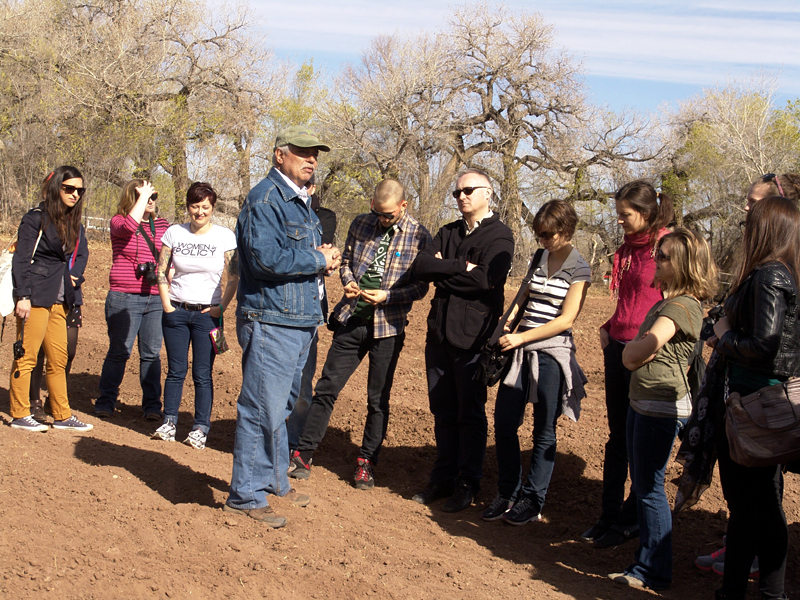
Quivira Coalition
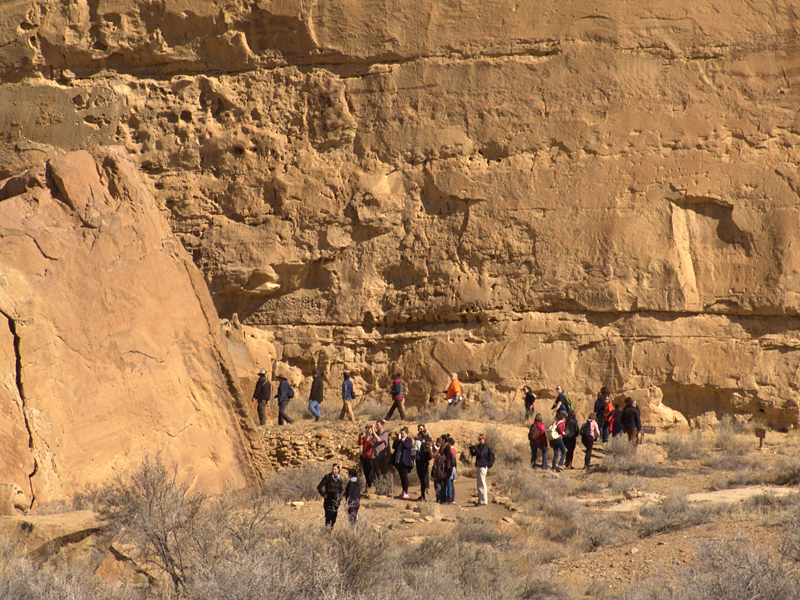
Chaco Canyon
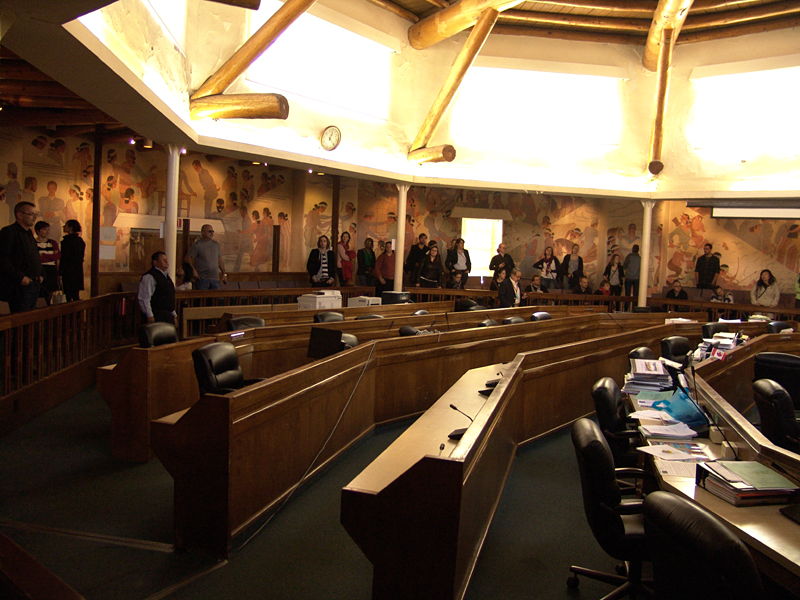
Navajo Nation
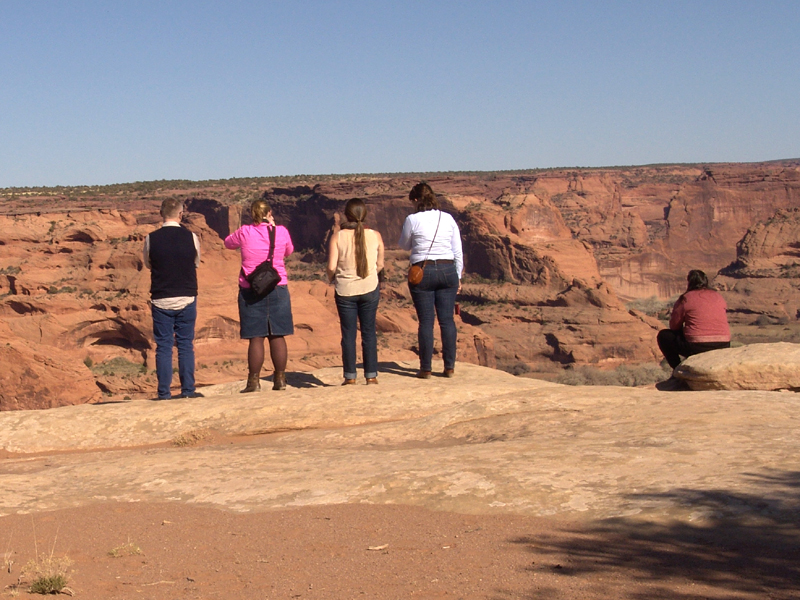
Canyon de Chelly

Monument Valley
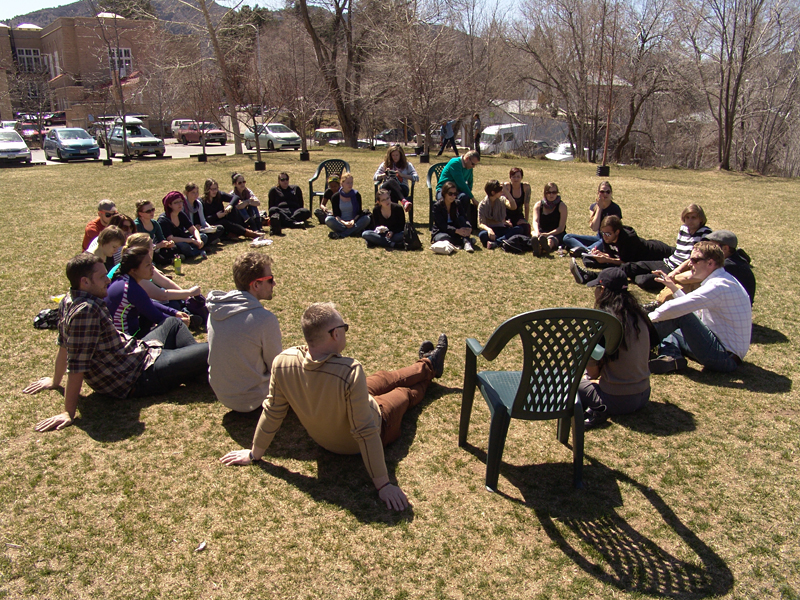
Workshop at Durango, CO
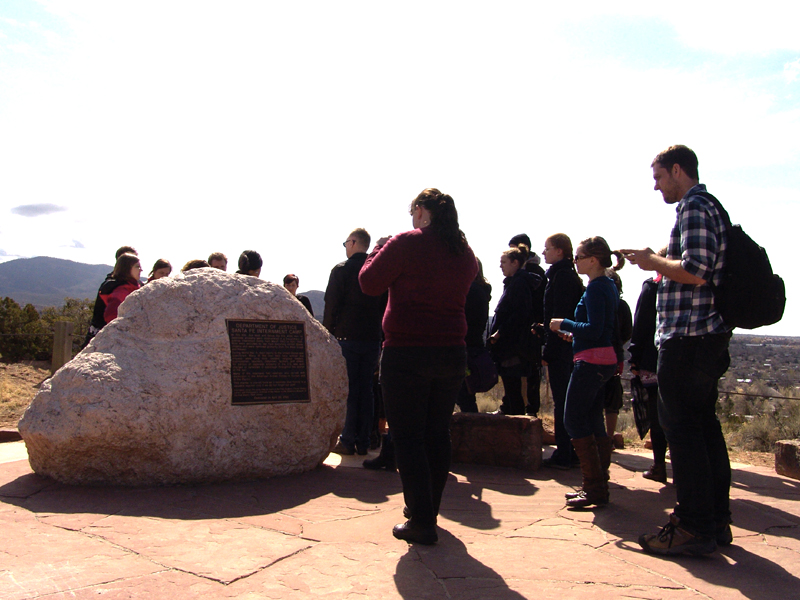
Japanese Internment Memorial, Santa Fe
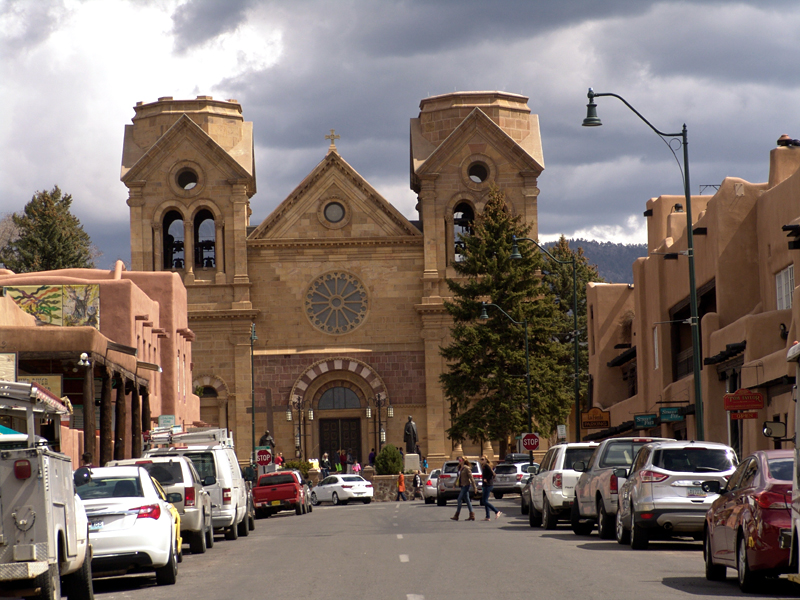
Santa Fe Cathedral
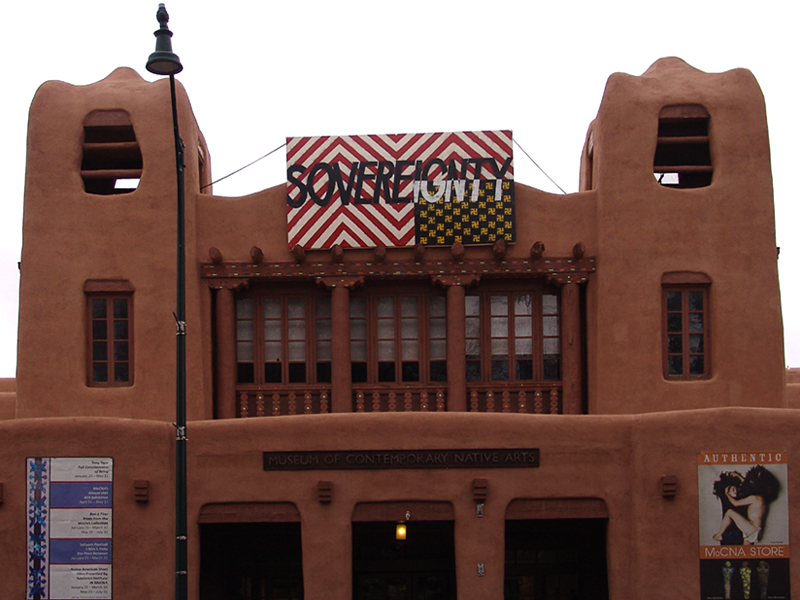
Santa Fe, Museum of the American Indian
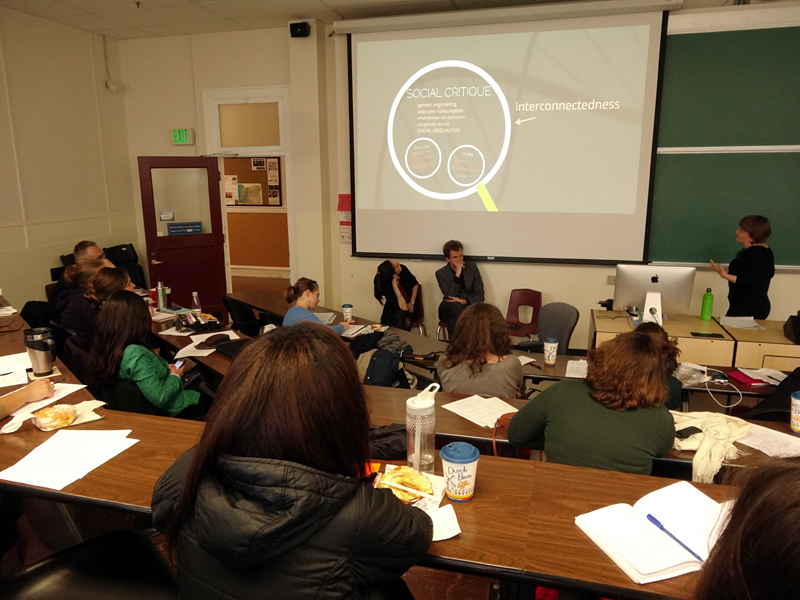
Symposium Conference
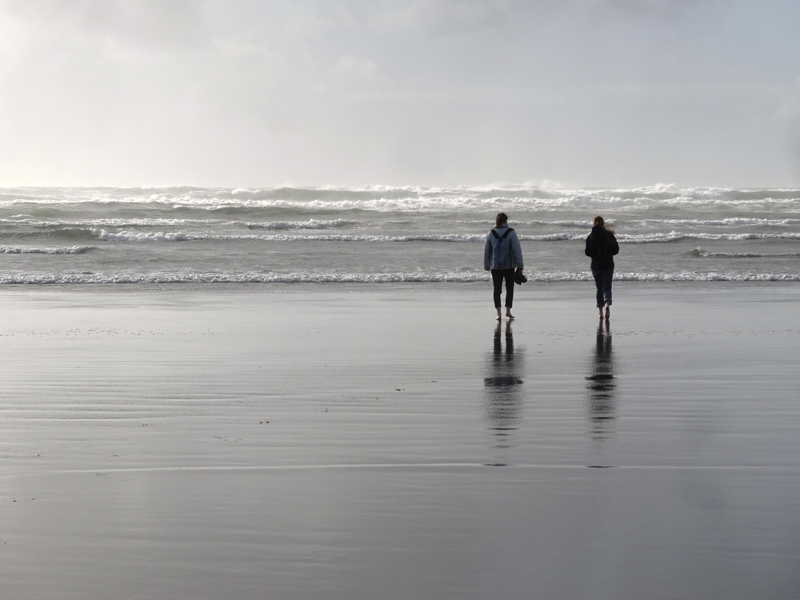
Pacific Ocean